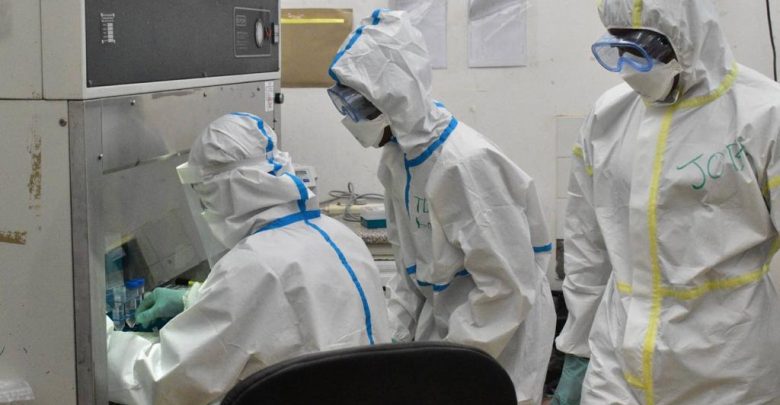Claim: If you recover from Covid-19, you can be reinfected as you have no immunity.
Verdict: Correct
…
Some people believe that if one suffered from Covid-19 and recovered they become immune to the virus and cannot be reinfected.
However, emerging studies indicate these beliefs are misleading as there are cases of Covid-19 reinfection incidences.
Experts admit they still know little about coronavirus since it is a new pandemic but they point out there are official reinfection cases across continents and ‘undoubtedly’ more that have gone unreported.
In a discussion with CITE, one medical expert explained it was possible for Covid-19 reinfection because immunity against the virus had not been achieved.
“When one has an infection, they develop antibodies, which ideally should remain in one’s system so that in the possibility of a reinfection the antibodies are quickly reactivated to fight the virus. But studies show with Covid-19 between three to six weeks the antibodies start declining and that does not guarantee you will be safe, as the antibodies won’t be effective and may not prevent you from reinfection,” said the doctor.
Stopping an infectious disease usually requires herd immunity, said the doctor, which is when most of a population is immune to an infectious disease and provides indirect protection to those who are not immune to the disease.
“A significant percentage of people have to be immune, for example if 75 percent of the population suffer from Covid-19 they may develop herd immunity so when someone encounters those with the disease, they won’t be sick and may not spread the disease any further keeping the infectious diseases under control. But this has not happened for Covid-19 as studies realised that antibodies declined therefore you are not guaranteed herd immunity and won’t stop a reinfection,” said the expert.
According to reports, the first official case of a Covid-19 reinfection was recorded in August 24, 2020.
This was a 33-year-old man who was treated at a Hong Kong hospital for a mild case in March and tested positive again at the Hong Kong airport on August 15, 2020 after returning from a trip to Spain.
Since then, at least 24 other reinfections have been officially confirmed but scientists say that is definitely an underestimate.
To count as a case of Covid-19 reinfection, scientists have said a patient must have had a positive Polymerase Chain Reaction (PCR) test twice with at least one symptom-free month in between.
In a study published November 2020 titled COVID-19 reinfection: prolonged shedding or true reinfection?, scholars – Shahab Falahi and Azra Kenarkoohi, said coronavirus reinfection remains to be fully clarified but there was evidence in favour of reinfection that should be considered.
“The maximum duration of SARS-CoV-2 RNA shedding in the upper respiratory tract has been reported to be 83 days. Therefore, positive retesting more than 83 days after the first positive test, along with other criteria, favours confirmation of reinfection,” they said.
“In addition to the abovementioned reasons, the diseases clinical data are also useful in confirming the second episode, although the second episode may be asymptomatic. A time interval where the patient is free of clinical signs between the two episodes is also necessary.”
The scholars concluded some researchers believed a Covid-19 positive retest may be explained by reactivation or relapse of the infection while others emphasized the reinfection hypothesis.
“In fact, however, a retest result of SARS-CoV-2 positivity should be interpreted correctly thanks to a false-negative test result at discharge, prolonged virus shedding, a rebound in virus replication after drug discontinuation and reinfection. According to the cases described above as well as the evidence confirming reinfection, although reinfection may occur, its incidence is low. However, the reinfection rate may be underestimated as a result of asymptomatic infections in one or both episodes,” they said.
This December, a Turkish infectious diseases and clinical microbiology specialist at Gulhane Training and Research Hospital in Turkey’s capital Ankara, Dr Umit Savasci, said patients who recovered from Covid-19 may face a more severe infection if they catch the virus for the second time.
Dr Savasci was quoted in media reports saying more intense involvement of infection in patients lungs is highly expected when a person tests positive for Covid-19 for a second time.
“If the patient passes Covid-19 very easily in the first time, it could be mild in the second time as well. If the patient was hospitalised in the first time, they may need intensive care in the second time. Especially the elderly geriatric patients may need this,” he said, recalling that Covid-19 is causing damage to lungs and kidneys.
He also pointed out the Covid-19 risk scale and the age group at risk has changed recently.
“Previously, people aged 65 and over were at risk, but now, people from one to 100 years of age are at risk […] Workers aged 30-40 are also at risk. Especially if the young people do not pay attention to their sleep and nutrition, if they have intense working conditions, they may come to our clinics in a more severe condition than an elderly person due to their suppressed immune system,” said Dr Savasci.








